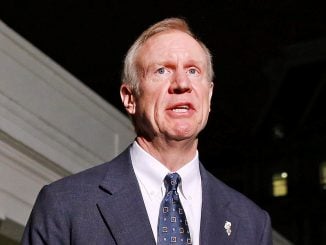
WASHINGTON Donald Trump’s Supreme Court nominee could help decide the fate of his moves to undo climate-related U.S. regulations, but legal experts said Neil Gorsuch’s judicial record makes it hard to predict whether as a justice he would back a sweeping rollback.If confirmed to the lifetime job by the Senate, the Colorado-based federal appeals court judge would restore the court’s 5-4 conservative majority. The Senate is planning an April 7 confirmation vote although many Democrats are fighting to block Gorsuch.On the court, Gorsuch could become a pivotal vote on the Republican president’s deregulation agenda, along with fellow conservative Anthony Kennedy, who sometimes joins the court’s four liberals in close cases.That agenda includes Trump’s effort to kill Democratic former President Barack Obama’s so-called Clean Power Plan, blocked by the high court last year, aimed at reducing climate-warming carbon emissions from mainly coal-fired power plants. Trump on Tuesday signed an executive order kicking off a lengthy review process that environmental groups and Democratic-governed U.S. states have promised to challenge in court.Gorsuch’s views on issues related to climate change are unclear, as his history with environmental policy cases is scant over his 11-year tenure as a judge. His mother headed the U.S. Environmental Protection Agency under Republican former President Ronald Reagan for two years in the 1980s.However, a 2016 case on federal agency power is potentially instructive on how he might approach broad moves to slash current regulation, according to experts.In that case, Gorsuch questioned a 1984 Supreme Court precedent giving federal agencies broad deference to interpret laws. Gorsuch called the doctrine, enshrined in the Chevron v. Natural Resource Defense Council ruling, an “elephant in the room” that concentrates federal power “in a way that seems more than a little difficult to square with the Constitution.”Questions remain over how that approach would manifest itself if applied to efforts by Trump’s EPA to weaken or rescind existing agency regulations on fighting climate change. Some environmental lawyers say it could mean Gorsuch would be skeptical of any big changes at the agency level. The EPA under Obama compiled detailed scientific data to support its efforts to curb carbon emissions.”That could hamper the Trump administration,” said Jonathan Adler, a conservative law professor at Case Western Reserve University School of Law in Cleveland.The extent to which the U.S. Clean Air Act, the law that tackles air pollution, applies to carbon emissions is heavily contested in the courts. The Supreme Court, in the landmark 2007 decision Massachusetts v. EPA, held that carbon is a pollutant that could be subject to regulation under the law.Environmental groups including the Sierra Club have said they are ready to pounce if they see signs that Trump’s EPA, headed by fossil fuels industry ally Scott Pruitt, is ignoring science in making climate-related regulatory changes.”I think the bottom line is that we hope any anti-regulatory rule-making should be so unscientific … almost any federal judge should see through the Trump administration maneuvering,” said Pat Gallagher, a Sierra Club lawyer.



